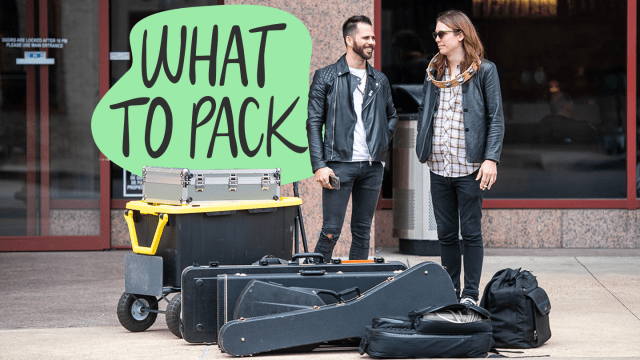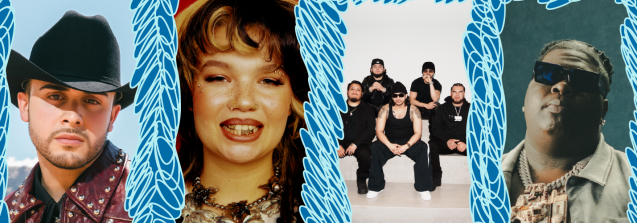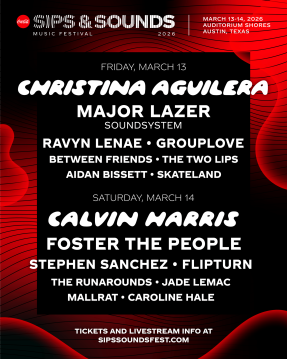Alice Skye, a rising pianist/songwriter based in Melbourne, Australia, has a discovery story that sounds like a daydream come to life. It started with “You Are the Mountains,” a song she wrote for her father (who died before Skye was born) while growing up in the Victoria town of Horsham.
Skye’s family is of Wergaia descent. So her older sister encouraged her to submit “You Are the Mountains” to the Central Australian Aboriginal Media Association (CAAMA) — a government-funded advocacy group that works to get the music of Indigenous artists to a wider audience. The song wound up being selected as a single from the 2015 compilation album Alakura on CAAMA Music, which also released Skye’s 2018 debut album, Friends With Feelings.
“Alice was dragged out of her bedroom, literally,” says Skye’s manager, Carolyn Logan. “She had not even performed in public before this, and the single started things for her.”
Along with organizations like CAAMA, Australia has multiple tiers of funding for eligible artists through both state and national programs. “Australia is made up of 250+ individual language groups,” explains Leah Flanagan, First Nations Producer with Sounds Australia, the country’s national music export initiative. “The diversity between the artists we work with is incredibly broad, from people who live in large metropolitan cities to some of the most remote places on the planet.”
“Indigenous music is not a genre …”
Flanagan, who is of Alyawarre descent and also a performing musician, emphasizes: “Indigenous music is not a genre … I’ve noticed so often that the audience places more expectations on Indigenous artists to live up to an outdated stereotype of what they think the artist should be, look and sound like.”
To help battle this dynamic, she says that Sounds Australia’s support includes advice and strategy to assist artists “so they feel culturally safe and in control of how they present themselves to international music markets that may not understand the complexities of the cultures each artist belongs to.”
Canada is another country that offers fairly robust official support for its First Nations artists, but the United States lags behind, a topic that will be addressed SXSW 2020. While the Music Festival welcomes several Indigenous performers, including Skye and other artists, there will be several Conference Sessions, including the Future of Music Track session "Indi(e)genous American Musicians," about the underrepresentation of Native Americans in contemporary American music, and relevant panels in the Connection & Culture, Climate & Social Action, and Film & TV Industry Tracks.
“What I’d like to see is for this to create the conversation,” says Rev. Moose, who is helping to organize the "Indi(e)genous American Musicians" panel. “On the international level, many territories are paying extra attention and committing resources to Indigenous communities, whether it's government initiatives or internal measures to be more inclusive. We don’t have that on a cultural level in the U.S. You can see that in the gap in how the U.S. treats Indigenous populations at the creative level.”

Rev. Moose
Moose is managing partner and co-founder of New York-based Marauder Group, a boutique music marketing firm with a list of clients from all over the world. Working with Music Finland, Manitoba Music’s Indigenous Music Development Program (IMDP) in Canada, and other similar programs has underscored for him how far the U.S. has to go.
“In America, Indigenous people are a missing minority in many ways,” he says. “Native American music as a genre is a GRAMMY category, but what does that mean from a contemporary perspective? When Native Americans listen to contemporary pop, why isn’t somebody who looks like them creating art? Why isn’t the next generation of creators being supported?”
In countries with such official support, there are still unspoken guidelines to observe. Lido Pimienta, a Colombian-born multimedia artist of mixed Afro-Colombian and Wayuu descent (and a SXSW 2020 performer), is based in Toronto. Her Polaris Prize-winning 2016 album, La Papessa, was made with a $6,000 grant from the Ontario Arts Council — but a general arts grant, not one targeted to Indigenous artists. “Canada has general public grants and grants specifically for Indigenous people. We don’t apply for Indigenous funding unless it specifies benefits for artists indigenous to South America or Canada.” Pimienta says.
Back in Australia, Alice Skye recently picked up a $3,000 state grant from Creative Victoria to help fund her travel to play the 2020 Folk Alliance International Conference in New Orleans. Skye’s manager, Logan, says they’ll keep applying for grants and support as Skye’s career progresses.
“Funding in Australia is extremely strong for Indigenous artists and has increased enormously in the past 15 years,” Logan says. “There’s been recognition by the government and arts community of the importance of Indigenous voices in the arts. The Canadian government has also been incredibly supportive of its Indigenous artists with grants, and it’s of great benefit to the community. As we know, the arts are a great leveler and certainly help create greater understanding and acceptance and love.”




